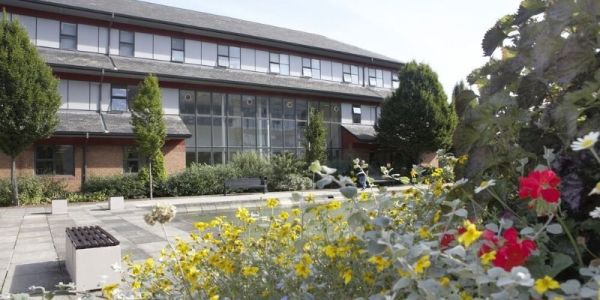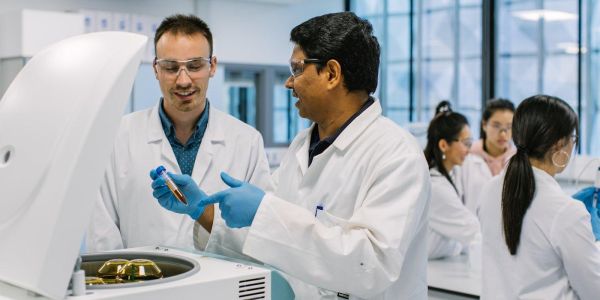Undergraduate degrees
Undergraduate degrees
The food industry is rapidly growing on a global scale. There is an international need for graduates who understand food chemistry, production, processing and storage, as well as the effects that food and diet have on our bodies and health. As a food science or nutrition graduate you could go on to work in manufacturing, nutritional therapy, quality assurance, product development or research.
Enhancing your degree
Study abroad
Studying abroad is a great way to enhance your university experience, develop as a person, and grow in confidence.
More on Study abroadWork placements
Taking a work placement during your course gives you a competitive edge when taking your next steps.
More on Work placementsIntegrated Masters
Studying a four-year Integrated Masters, extends your studies to Masters level.
More on Integrated MastersA Day in the Life of an Undergraduate Food Science and Nutrition Stude
Food Science and Nutrition: Where could it take you?
Why study at Leeds?
Accredited degrees: Our Industrial Advisory Board work with our academic staff to ensure that our degree courses meet the needs of graduate employers. Many of our degrees are accredited by the relevant professional body, such as the Institute of Food Science and Technology.
Hands-on learning: You will apply your knowledge and skills to a range of projects. In your third year you will carry out a team project based on new product development.
Flexible degrees: Enhance your learning by choosing to take a study abroad year or industry placement, which develops your independence and is attractive to employers.
Research-based learning: Our globally recognised research feeds directly into your course and shapes what you learn with the latest thinking.
Global community: When you choose to study at the University of Leeds, you'll join a friendly, supportive and diverse community of students and researchers who come from all over the world.
Supporting your studies: We support you from the moment you arrive to help you adjust to studying at university, and you'll be guided through your course by your personal tutor. We’re proud to have been awarded Bronze Athena SWAN status which shows our strong commitment to equality.
Exploring Leeds
Grand buildings, iconic landmarks and sustainable green space: our single-site campus has it all. When you study at the University of Leeds, you’ll be on the doorstep to one of the most vibrant and multicultural cities in the UK, with the benefit of enjoying our historic campus.
Funding your degree
If you have the talent, drive and potential to succeed, we want to make sure you can study with us whatever your financial circumstances. Find out about the different types of funding available in our funding overview and scholarships directory.
Find your place
One of the best ways to find out what it's like to live and study in Leeds is by speaking to a student. We have over 100 ambassadors live on Unibuddy, and you can search by course, subject area, level of study and nationality to find the right person to talk to.
Teng U
“Nutritionists contribute to more things than people know sometimes. Every branded food product you see on shelves has been examined by a team of nutritionists and dietitians.”
Teng U, Nutrition BSc
Philip Chalmers
"Through discovery modules, I am allowed to customise my own learning. So far, I have been able to improve my employability and have expanded my knowledge across different scientific fields."
Philip Chalmers, Food Science and Nutrition BSc
Lucy Garman
"Everything I’ve learnt on my course will definitely be translated into my career, especially the practical knowledge; I’ve already applied a lot of that into my placement."
Lucy Garman, Food Science MSci, BSc
Online taster course
Food Science and Nutrition: From the Farm to You is a free online course, delivered via FutureLearn, introducing you to the fascinating world of food. You will learn how Food Science and Nutrition combine knowledge from engineering, biology and physical sciences to study all aspects of food and to ensure what we consume is safe and wholesome. Join the online course today.















